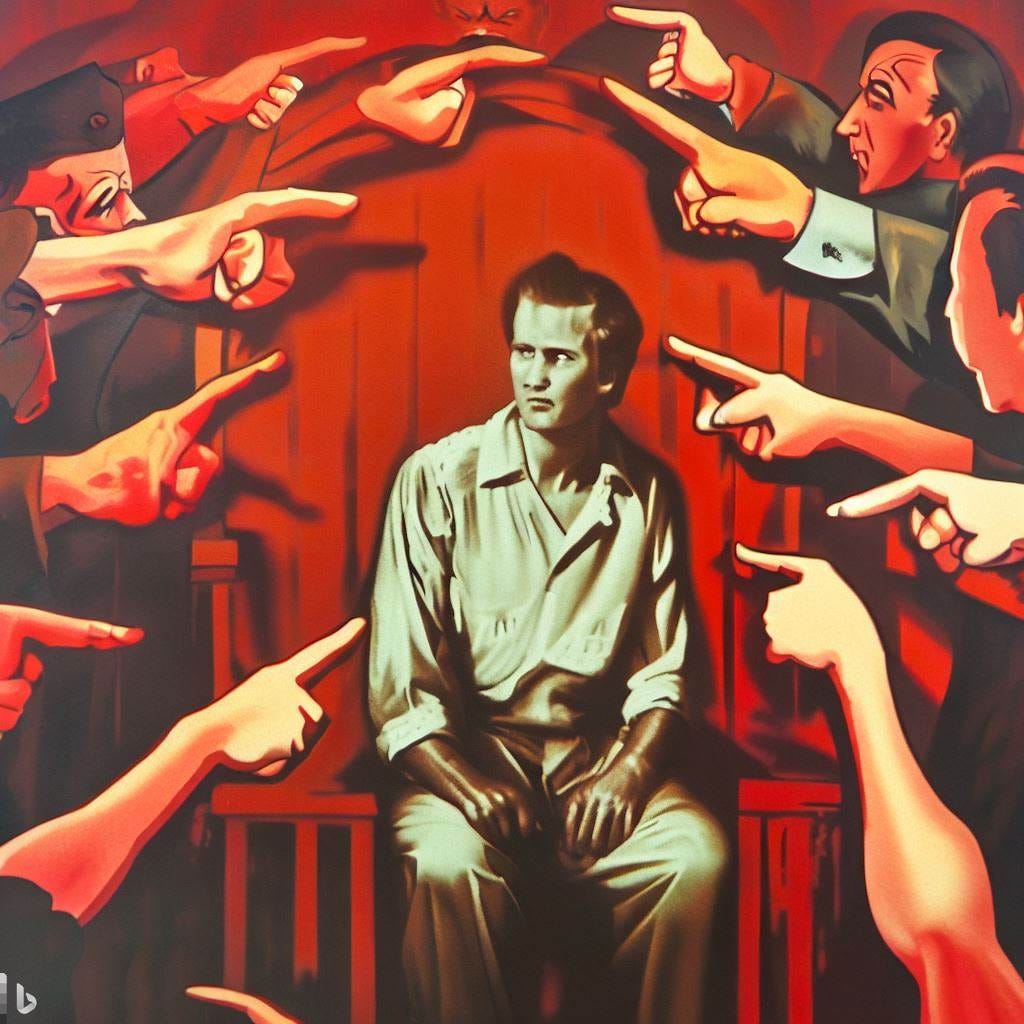The Criminal Court of Public Opinion
Imagine being accused of a crime that you did not commit. You are arrested, charged, and your name is splashed across the media. You are confident that you will be vindicated in court, but you have to wait months or years for your trial. Meanwhile, your reputation is ruined, your career is derailed, and your life is turned upside down.
Now imagine that you are finally acquitted of all charges. You expect to resume your life. But you soon discover that the internet never forgets. The original accusations persist online, but the acquittal is buried or ignored. You are forever branded a criminal even though the criminal justice system vindicated you.
This is not a hypothetical scenario. It happened to me. I was charged with salacious crimes that were published by local media thirsty for page views and subscribers. It took three years before I was given a trial and acquitted of the charges, but the damage was irreversible. Years later, the original accusations still appear first when someone searches my name online. The acquittal is hard to find.
I am not alone in this predicament. Many people who have been charged with crimes but found not guilty face the same problem of online defamation. The internet has eradicated the presumption of innocence that is a supposed cornerstone of our legal system. It has created a shadow online justice system in which the accused are presumed guilty and vindication is virtually impossible.
In bygone days, only public figures needed to be concerned with defamation. But the internet gives law enforcement and “news” media top page ranks. It does not discount them appropriately. Most people do not appreciate the political nature of American law enforcement. Prosecutors present a one-sided case to grand juries, courts, and the press. Police have no incentive to tell an objective story or to admit any doubt in their actions. Everyone likes to see the bad guys caught, so police thrive on the positive publicity of vilifying the people they arrest. They can engage in malicious defamation of the people they accuse because government and its officials have legal immunity to civil claims for slander. The media are happily complicit in this premature trial-by-publicity, since most survive by churning out sensationalized stories that attract clicks and shares, without regard for nuance or balance.
The accused, meanwhile, must remain silent: As every lawyer knows, defendants cannot wage a public defense before a formal trial without jeopardizing their rights.
This was an unfair system before the internet; now it is impossible to recover from it. Online articles do not fade away or get thrown out. Particularly in the case of an otherwise private person, one's moment in the public spotlight will always dominate their search results. The media have no incentive to update their negative publicity after a verdict, or to correct any errors or omissions in their reporting. The accused have no recourse in the court of search engine rankings.1
This situation is unjust, and it rightly undermines the integrity of our justice system. When accusations amount to convictions in the court of public opinion, every police officer becomes a de facto judge and jury.
We need to find ways to protect the rights and reputations of people who are accused of crimes but not found guilty. We need to hold law enforcement and media accountable for their actions and statements in criminal cases. We need to educate the public about the importance of deferring to the criminal courts to pass judgment in criminal matters.
We need to restore the meaning and value of the presumption of innocence in the internet age.
The European Union created a "right to be forgotten" to deal with this problem, but Google prevailed on EU courts to water down that right by only agreeing to remove search results for users it can determine are located within the EU. So nobody is forgotten for users browsing through a VPN.




